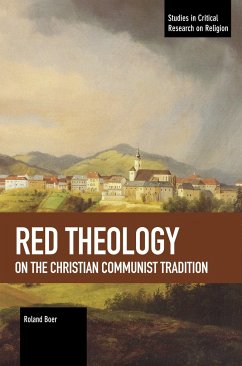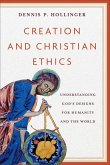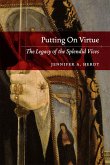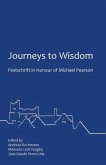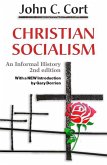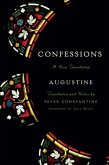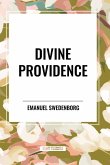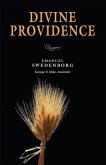- Broschiertes Buch
- Merkliste
- Auf die Merkliste
- Bewerten Bewerten
- Teilen
- Produkt teilen
- Produkterinnerung
- Produkterinnerung
In this illuminating new study renowned researcher Roland Boer unearths the little studied, but widely influential, tradition of Christian communism.
Andere Kunden interessierten sich auch für
![Creation and Christian Ethics Creation and Christian Ethics]() Dennis P HollingerCreation and Christian Ethics27,99 €
Dennis P HollingerCreation and Christian Ethics27,99 €![Putting On Virtue Putting On Virtue]() Jennifer A HerdtPutting On Virtue53,99 €
Jennifer A HerdtPutting On Virtue53,99 €![Journeys to Wisdom Journeys to Wisdom]() Journeys to Wisdom18,99 €
Journeys to Wisdom18,99 €![Christian Socialism Christian Socialism]() John C CortChristian Socialism39,99 €
John C CortChristian Socialism39,99 €![Confessions Confessions]() AugustineConfessions16,99 €
AugustineConfessions16,99 €![Divine Providence Divine Providence]() Emanuel SwedenborgDivine Providence18,99 €
Emanuel SwedenborgDivine Providence18,99 €![Divine Providence: Portable Divine Providence: Portable]() Emanuel SwedenborgDivine Providence: Portable14,99 €
Emanuel SwedenborgDivine Providence: Portable14,99 €-
-
-
In this illuminating new study renowned researcher Roland Boer unearths the little studied, but widely influential, tradition of Christian communism.
Hinweis: Dieser Artikel kann nur an eine deutsche Lieferadresse ausgeliefert werden.
Hinweis: Dieser Artikel kann nur an eine deutsche Lieferadresse ausgeliefert werden.
Produktdetails
- Produktdetails
- Verlag: Haymarket Books
- Seitenzahl: 294
- Erscheinungstermin: 1. August 2020
- Englisch
- Abmessung: 225mm x 149mm x 19mm
- Gewicht: 422g
- ISBN-13: 9781642593723
- ISBN-10: 1642593729
- Artikelnr.: 58665134
- Herstellerkennzeichnung
- Libri GmbH
- Europaallee 1
- 36244 Bad Hersfeld
- gpsr@libri.de
- Verlag: Haymarket Books
- Seitenzahl: 294
- Erscheinungstermin: 1. August 2020
- Englisch
- Abmessung: 225mm x 149mm x 19mm
- Gewicht: 422g
- ISBN-13: 9781642593723
- ISBN-10: 1642593729
- Artikelnr.: 58665134
- Herstellerkennzeichnung
- Libri GmbH
- Europaallee 1
- 36244 Bad Hersfeld
- gpsr@libri.de
Roland Boer is Xin Ao Distinguished Overseas Professor in Philosophy at Renmin University of China. His research concerns the complex intersections between Marxism and religion, having recently published Stalin: From Theology to the Philosophy of Socialism in Power (2017).
Preface
Series Editor Preface
Introduction
1 Karl Kautsky’s Forerunners of Modern Socialism
1 The Manifold Types of Heretical Communism
2 Müntzer and Münster
3 Theology and Revolution
2 Early Christian Communism as a Political Myth
1 Reconstruction: Kautsky
2 Reconstruction: Rosa Luxemburg
3 Consumption Versus Production, or, Transition
4 The Question of History
5 Political Myth
3 Reaction and Revolution: How to Read the Apostle Paul
1 Anti- or Pro- Empire?
2 Contradiction Analysis
3 Imaginary Resolution
4 Conclusion
4 Omnia Sunt Communia: Theology and Politics in Luther Blissett’sQ
1 Q and the Marxist Tradition
2 Issues
3 Conclusion: How to Be Truly Radical
5 John Calvin and the Problem of Ungodly Rulers
1 Two Kingdoms or One
2 Anarchy or Tyranny
3 Ungodly Rulers
3.1 Obey!
3.2 God’s Agents
3.3 Magistrates
3.4 Let Princes Hear and be Afraid!
4 Subject Only in the Lord
5 Conclusion
6 From Luther to Marx and Engels
1 Human Nature
2 Engels, Luther and Thomas Müntzer
3 Marx and Luther
3.1 Two Revolutionary Stages
3.2 A Revolutionary Reformation?
3.3The New Revolution
4 Conclusion
7 Heilsgeschichte, History and Marxism
1 Calculating the Day
1.1 Bruno Bauer and Marx
1.2 Engels and the Apocalypse
1.3 Early Eschatological Communism
2 Moving Mountains: Concerning Narrative Structure
2.1 Stirner’s Ego and Christ
2.2 Towards Contradiction
3 Relativising Theology
8 Revisiting the Marxist-Christian Dialogue
1 Limitations
2 From Then...
3 To Now
3.1 Human Nature
3.2 Alienation
3.3 Prometheus and the Future
4 Conclusion: Reconsidering the Background
9 Althusser and the Possibility of Religious Revolution
1 Trapped in the Past
2 Sources of Hope
2.1 From Social Revolution...
2.2 To Spiritual Revolution
3 Conclusion
10 By Science and Prayer: The Christian Communism of Farnham Maynard
1 Science and Prayer
2 Modulations of an Anglo-Catholic Dialectic
2.1 Discerning the Tension between Revolution and Reaction
2.2 Christianity and Socialism
3 Conclusion: On Enthusiasm
11 Christian Communism and the Bolsheviks
1 Peasant Socialism
2 Twisting over Tolstoy
3 God-Builders
4 Conclusion
12 The Taiping Revolution: Christian Communism Comes to China
1 The Dream
2 Hong and the Bible
3 Revolution and Community
4 Interpreting the Taiping Revolution
5 Mao Zedong and the Taiping Revolution
13 Chinese Christian Communism in the Early Twentieth Century
1 Revolutionary Times and Influences
2 Christianity and Communism
2.1 Method
2.2 Reconstruction
2.3 Identity and Difference
3 Conclusion: Christianity and Marxism with Chinese Characteristics?
14 Religion and Revolution in Korea
1 Chondoism
2 Protestant Christians
3 The DPRK Today
4 Juche Theology?
Conclusion
Bibliography
Series Editor Preface
Introduction
1 Karl Kautsky’s Forerunners of Modern Socialism
1 The Manifold Types of Heretical Communism
2 Müntzer and Münster
3 Theology and Revolution
2 Early Christian Communism as a Political Myth
1 Reconstruction: Kautsky
2 Reconstruction: Rosa Luxemburg
3 Consumption Versus Production, or, Transition
4 The Question of History
5 Political Myth
3 Reaction and Revolution: How to Read the Apostle Paul
1 Anti- or Pro- Empire?
2 Contradiction Analysis
3 Imaginary Resolution
4 Conclusion
4 Omnia Sunt Communia: Theology and Politics in Luther Blissett’sQ
1 Q and the Marxist Tradition
2 Issues
3 Conclusion: How to Be Truly Radical
5 John Calvin and the Problem of Ungodly Rulers
1 Two Kingdoms or One
2 Anarchy or Tyranny
3 Ungodly Rulers
3.1 Obey!
3.2 God’s Agents
3.3 Magistrates
3.4 Let Princes Hear and be Afraid!
4 Subject Only in the Lord
5 Conclusion
6 From Luther to Marx and Engels
1 Human Nature
2 Engels, Luther and Thomas Müntzer
3 Marx and Luther
3.1 Two Revolutionary Stages
3.2 A Revolutionary Reformation?
3.3The New Revolution
4 Conclusion
7 Heilsgeschichte, History and Marxism
1 Calculating the Day
1.1 Bruno Bauer and Marx
1.2 Engels and the Apocalypse
1.3 Early Eschatological Communism
2 Moving Mountains: Concerning Narrative Structure
2.1 Stirner’s Ego and Christ
2.2 Towards Contradiction
3 Relativising Theology
8 Revisiting the Marxist-Christian Dialogue
1 Limitations
2 From Then...
3 To Now
3.1 Human Nature
3.2 Alienation
3.3 Prometheus and the Future
4 Conclusion: Reconsidering the Background
9 Althusser and the Possibility of Religious Revolution
1 Trapped in the Past
2 Sources of Hope
2.1 From Social Revolution...
2.2 To Spiritual Revolution
3 Conclusion
10 By Science and Prayer: The Christian Communism of Farnham Maynard
1 Science and Prayer
2 Modulations of an Anglo-Catholic Dialectic
2.1 Discerning the Tension between Revolution and Reaction
2.2 Christianity and Socialism
3 Conclusion: On Enthusiasm
11 Christian Communism and the Bolsheviks
1 Peasant Socialism
2 Twisting over Tolstoy
3 God-Builders
4 Conclusion
12 The Taiping Revolution: Christian Communism Comes to China
1 The Dream
2 Hong and the Bible
3 Revolution and Community
4 Interpreting the Taiping Revolution
5 Mao Zedong and the Taiping Revolution
13 Chinese Christian Communism in the Early Twentieth Century
1 Revolutionary Times and Influences
2 Christianity and Communism
2.1 Method
2.2 Reconstruction
2.3 Identity and Difference
3 Conclusion: Christianity and Marxism with Chinese Characteristics?
14 Religion and Revolution in Korea
1 Chondoism
2 Protestant Christians
3 The DPRK Today
4 Juche Theology?
Conclusion
Bibliography
Preface
Series Editor Preface
Introduction
1 Karl Kautsky’s Forerunners of Modern Socialism
1 The Manifold Types of Heretical Communism
2 Müntzer and Münster
3 Theology and Revolution
2 Early Christian Communism as a Political Myth
1 Reconstruction: Kautsky
2 Reconstruction: Rosa Luxemburg
3 Consumption Versus Production, or, Transition
4 The Question of History
5 Political Myth
3 Reaction and Revolution: How to Read the Apostle Paul
1 Anti- or Pro- Empire?
2 Contradiction Analysis
3 Imaginary Resolution
4 Conclusion
4 Omnia Sunt Communia: Theology and Politics in Luther Blissett’sQ
1 Q and the Marxist Tradition
2 Issues
3 Conclusion: How to Be Truly Radical
5 John Calvin and the Problem of Ungodly Rulers
1 Two Kingdoms or One
2 Anarchy or Tyranny
3 Ungodly Rulers
3.1 Obey!
3.2 God’s Agents
3.3 Magistrates
3.4 Let Princes Hear and be Afraid!
4 Subject Only in the Lord
5 Conclusion
6 From Luther to Marx and Engels
1 Human Nature
2 Engels, Luther and Thomas Müntzer
3 Marx and Luther
3.1 Two Revolutionary Stages
3.2 A Revolutionary Reformation?
3.3The New Revolution
4 Conclusion
7 Heilsgeschichte, History and Marxism
1 Calculating the Day
1.1 Bruno Bauer and Marx
1.2 Engels and the Apocalypse
1.3 Early Eschatological Communism
2 Moving Mountains: Concerning Narrative Structure
2.1 Stirner’s Ego and Christ
2.2 Towards Contradiction
3 Relativising Theology
8 Revisiting the Marxist-Christian Dialogue
1 Limitations
2 From Then...
3 To Now
3.1 Human Nature
3.2 Alienation
3.3 Prometheus and the Future
4 Conclusion: Reconsidering the Background
9 Althusser and the Possibility of Religious Revolution
1 Trapped in the Past
2 Sources of Hope
2.1 From Social Revolution...
2.2 To Spiritual Revolution
3 Conclusion
10 By Science and Prayer: The Christian Communism of Farnham Maynard
1 Science and Prayer
2 Modulations of an Anglo-Catholic Dialectic
2.1 Discerning the Tension between Revolution and Reaction
2.2 Christianity and Socialism
3 Conclusion: On Enthusiasm
11 Christian Communism and the Bolsheviks
1 Peasant Socialism
2 Twisting over Tolstoy
3 God-Builders
4 Conclusion
12 The Taiping Revolution: Christian Communism Comes to China
1 The Dream
2 Hong and the Bible
3 Revolution and Community
4 Interpreting the Taiping Revolution
5 Mao Zedong and the Taiping Revolution
13 Chinese Christian Communism in the Early Twentieth Century
1 Revolutionary Times and Influences
2 Christianity and Communism
2.1 Method
2.2 Reconstruction
2.3 Identity and Difference
3 Conclusion: Christianity and Marxism with Chinese Characteristics?
14 Religion and Revolution in Korea
1 Chondoism
2 Protestant Christians
3 The DPRK Today
4 Juche Theology?
Conclusion
Bibliography
Series Editor Preface
Introduction
1 Karl Kautsky’s Forerunners of Modern Socialism
1 The Manifold Types of Heretical Communism
2 Müntzer and Münster
3 Theology and Revolution
2 Early Christian Communism as a Political Myth
1 Reconstruction: Kautsky
2 Reconstruction: Rosa Luxemburg
3 Consumption Versus Production, or, Transition
4 The Question of History
5 Political Myth
3 Reaction and Revolution: How to Read the Apostle Paul
1 Anti- or Pro- Empire?
2 Contradiction Analysis
3 Imaginary Resolution
4 Conclusion
4 Omnia Sunt Communia: Theology and Politics in Luther Blissett’sQ
1 Q and the Marxist Tradition
2 Issues
3 Conclusion: How to Be Truly Radical
5 John Calvin and the Problem of Ungodly Rulers
1 Two Kingdoms or One
2 Anarchy or Tyranny
3 Ungodly Rulers
3.1 Obey!
3.2 God’s Agents
3.3 Magistrates
3.4 Let Princes Hear and be Afraid!
4 Subject Only in the Lord
5 Conclusion
6 From Luther to Marx and Engels
1 Human Nature
2 Engels, Luther and Thomas Müntzer
3 Marx and Luther
3.1 Two Revolutionary Stages
3.2 A Revolutionary Reformation?
3.3The New Revolution
4 Conclusion
7 Heilsgeschichte, History and Marxism
1 Calculating the Day
1.1 Bruno Bauer and Marx
1.2 Engels and the Apocalypse
1.3 Early Eschatological Communism
2 Moving Mountains: Concerning Narrative Structure
2.1 Stirner’s Ego and Christ
2.2 Towards Contradiction
3 Relativising Theology
8 Revisiting the Marxist-Christian Dialogue
1 Limitations
2 From Then...
3 To Now
3.1 Human Nature
3.2 Alienation
3.3 Prometheus and the Future
4 Conclusion: Reconsidering the Background
9 Althusser and the Possibility of Religious Revolution
1 Trapped in the Past
2 Sources of Hope
2.1 From Social Revolution...
2.2 To Spiritual Revolution
3 Conclusion
10 By Science and Prayer: The Christian Communism of Farnham Maynard
1 Science and Prayer
2 Modulations of an Anglo-Catholic Dialectic
2.1 Discerning the Tension between Revolution and Reaction
2.2 Christianity and Socialism
3 Conclusion: On Enthusiasm
11 Christian Communism and the Bolsheviks
1 Peasant Socialism
2 Twisting over Tolstoy
3 God-Builders
4 Conclusion
12 The Taiping Revolution: Christian Communism Comes to China
1 The Dream
2 Hong and the Bible
3 Revolution and Community
4 Interpreting the Taiping Revolution
5 Mao Zedong and the Taiping Revolution
13 Chinese Christian Communism in the Early Twentieth Century
1 Revolutionary Times and Influences
2 Christianity and Communism
2.1 Method
2.2 Reconstruction
2.3 Identity and Difference
3 Conclusion: Christianity and Marxism with Chinese Characteristics?
14 Religion and Revolution in Korea
1 Chondoism
2 Protestant Christians
3 The DPRK Today
4 Juche Theology?
Conclusion
Bibliography

